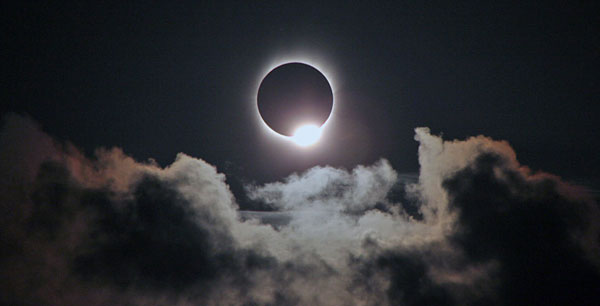Most of the time we at Sky & Telescope ponder what’s up there, in the sky. But sometimes we need to focus on what’s down here, on Earth. Events can force us to consider our role in society, examine our values, decide what’s important to us, and speak out. Now is such a time.
In recent months, the United States has been coming to grips yet again with the entrenched racism and inequalities in our society. At Sky & Telescope, we wish to state our unequivocal support for Black Lives Matter and related movements and initiatives to end systemic racism here and elsewhere in the world. We also support our parent organization, the American Astronomical Society, in its fight against racism in professional astronomy, and we pledge to address the same problem in amateur astronomy.
It’s no secret that backyard astronomers are overwhelmingly white. Blacks and other minorities are seriously underrepresented in our ranks. In professional astronomy, people of color represent only 3% to 5% of physics and astronomy faculty at American universities, even as they compose about 30% of the U.S. population. The disparity may even be greater in amateur astronomy.
We take this imbalance to heart, because Sky & Telescope aspires to serve not just one segment of humanity but all of humanity. Our desire to share the wonders of the heavens with others encompasses everyone everywhere. We believe all people are captivated by the universe and its mysteries and should have the chance to observe it. Is there a person on this planet who hasn’t had (or wouldn’t have) the same “Wow!” reaction upon seeing Saturn for the first time in a telescope?
That caveat — “wouldn’t have” — speaks volumes. It’s easy to think that nothing embodies egalitarianism more than looking at the stars. Anyone can gaze up at the night sky; the Moon, planets, and stars do not discriminate but shine their light on all. Yet in reality, there’s also inequality in stargazing. Not everyone who wants to observe the night sky actually can. Most underserved people live where light pollution is worst, and for them resources like time, adequate income, decent science education, and access to dark-sky sites or even basic observing equipment might not exist.
How can we at S&T begin to tackle this longstanding, deep-seated inequity in amateur astronomy?
We realize that addressing these issues must start with S&T itself: its print and web content, its staff and contributors, its mission and worldview. Listening is most important. In what ways are we unconsciously helping to perpetuate the status quo? What biases are we allowing to creep into our efforts? What barriers do we need to remove? How can we provide truly useful resources for the wider community?
Assessing how well we’re doing will include gauging tangible results in terms of hearing from more voices and otherwise broadening our demographic. We’re not talking about just public outreach and education, but active participation by people of color in amateur astronomy. From now on, we plan to be proactive rather than reactive (or, worse, unreactive) while understanding that the role of allies is to assist, not to tell how.
There’s no quick fix. We’re a small staff, and achieving genuine results on this front may take years. But we want our subscribers, web readers, supporters, and followers to know that our heart is in it, and we will commit time, funds, brainpower, and other resources to it over the long haul.
What do we have in mind? We’ll make greater efforts to work with researchers, journalists, photographers, and illustrators who are people of color. We will continue to post profiles of Black astronomers in the Famous Astronomers section of skyandtelescope.org. We’re exploring the possibility of hosting or assisting sidewalk astronomy or a star party within underserved communities. We’re also actively seeking a range of voices with experience in minority issues — Black astronomers, community organizers, members of underserved neighborhoods, and others — to guide us as we move forward.
In the meantime, we want to hear from you. If you or someone you know has felt uncomfortable attending an observatory night or star party in your area or otherwise taking that first step into astronomy, what most dissuades you? What needs to be done better, and how? If you’re working on improving diversity and inclusion in the amateur astronomy community or in your local club, please contact us. What has worked? What hasn’t?
Write to us at [email protected] or c/o Sky & Telescope, 1374 Massachusetts Ave, Floor 4, Cambridge, MA 02138, USA (Attn: Astronomy for All). We welcome your ideas, comments, and suggestions, and we promise to read every email or letter we receive on this vital topic. All comments and contact information will be kept strictly confidential.
Thank you in advance for helping to educate us; we appreciate your time and effort.
Our doors are open to all. Please come in.
The Staff of Sky & Telescope
 0
0








